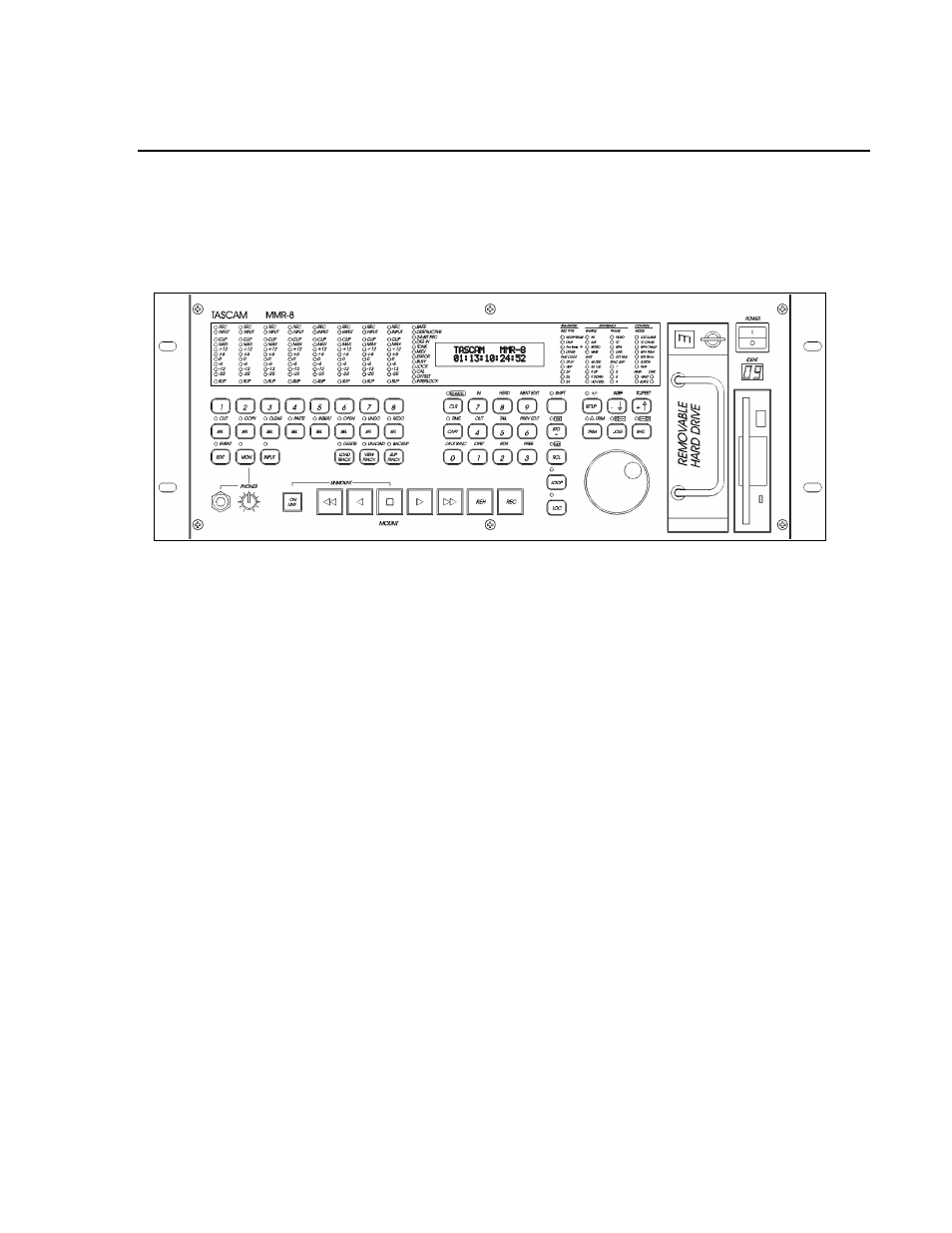Chapter 1 general information, Mmr-8 introduction – Tascam MMR-8 User Manual
Page 12

MMR-8 TASCAM MMR-8 Owner’s Manual • Chapter 1 • General Information
12
Chapter 1 General Information
This chapter presents the main features and capabilities of the MMR-8 hardware and a functional
overview of its Panel/Display states. MMR-8 product specifications are also included.
MMR-8 Introduction
MMR-8 Front View
The MMR-8 is a non-linear digital replacement for the analog or digital tape machines found in recording
studios and broadcast facilities, and for magnetic film dubbers found in film and video post-production
facilities. The MMR-8 can play back and record eight tracks of material from one or more SCSI hard
drives or other removable media. Playback can be in exact or track-slipped synchronization to industry-
standard film, video, and audio devices, whether they are mechanical tape-based or hard drive-based.
Audio files recorded on the MMR-8 consist of selectable linear 16-bit or linear 24-bit words at sample
rates of 48.0 kHz or 44.1 kHz, modifiable to a pull-up or pull-down rate, including conversion between
PAL, film, and video, making fourteen total discrete sampling rates. The analog I/O section uses
balanced +4 dBu analog connections on DB-25 connectors that are pin-compatible with the TASCAM
DA-88 and may use the same cables. The DIO (Digital I/O) connection provides digital audio inputs and
outputs which conform to the AES/EBU standard for direct digital recording and playback. The digital
I/O connector can use a standard DA-88 cable (the analog cable – not TDIF) to provide four stereo AES
inputs and four stereo AES outputs. See the Pin out drawing given in Appendix D for detailed
information. Any digital input can be selected as the sample clock reference source. Additionally, any one
of the four digital input signal pairs can be selected for routing through a sample rate converter.